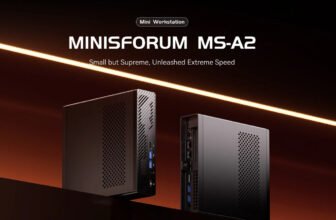MSI Afterburner, the long-standing GPU overclocking and monitoring utility, is set to receive support for AMD’s upcoming RDNA 4 graphics hardware. The news comes amid MSI’s shift in focus away from manufacturing Radeon-based discrete graphics cards this generation. However, development of Afterburner continues independently, and RDNA 4 compatibility is being added regardless of MSI’s GPU product strategy.
The software’s sole developer, Alexey Nicolaychuk—better known online as “Unwinder”—shared an update on the Guru3D forums last week. In his post, he confirmed that MSI has chosen not to produce Radeon RX 9000-series cards, including models based on the RDNA 4 architecture such as the RX 9070 XT. As a result, no official hardware samples were sent for development or testing of the new GPUs with Afterburner.

“MSI decided to skip RDNA 4 and focus on manufacturing NVIDIA GPU-based solutions only this round,” Nicolaychuk wrote. “Meaning that I get no MSI RDNA 4 hardware samples for development, so there is no RX 9070 XT support in MSI Afterburner, yet.”
Despite the lack of direct support or samples from MSI, Nicolaychuk has taken it upon himself to ensure that RDNA 4 users can still monitor and tweak their hardware through Afterburner. To work around the absence of official support, he has acquired a Radeon RX 9070 XT 16 GB card manufactured by a third-party vendor. A photo included in his forum post shows a stripped-down version of the card, suggesting it is not intended for consumer use.
“I decided to close this gap myself,” he explained, referencing the newly acquired card. He added that the next Afterburner beta version will include preliminary support for the RX 9070 XT. This development effort, while unofficial, ensures that RDNA 4 users will still be able to utilize Afterburner for fan control, hardware monitoring, and possibly basic overclocking functions.

Although MSI has paused production of Radeon discrete GPUs this cycle, the company still maintains partnerships with AMD. MSI continues to develop motherboards that support AMD processors, including those with integrated Radeon graphics. This ongoing collaboration helps maintain a level of compatibility across platforms, even if the focus has shifted to NVIDIA’s GPU lineup for discrete desktop cards.
The upcoming update to MSI Afterburner reinforces the software’s relevance and adaptability. Users who rely on the tool for system tuning and thermal monitoring will benefit from continued development, even as the graphics card landscape changes. More details, including the full changelog and support list, are expected once the new beta is released.
Sources: Guru3D Forums, VideoCardz, GameGPU, PC Gamer







